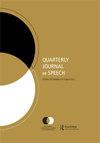Privacy, precarity, and political change: Connecting gendered violence to reproductive injustice
IF 1.3
2区 文学
Q2 COMMUNICATION
引用次数: 0
Abstract
ABSTRACT This essay examines the interplay between systems of gendered violence and reproductive injustice especially as they exist within frameworks of public and private spheres of knowledge/ experience. I suggest that like domestic violence, abortion care is often articulated as a private issue in need of public support and resources. This framing undercuts the systemic operation of power and control at the cultural level that sustains intersectional violence against people who are already most vulnerable under neocolonial/ hetero-patriarchal/ white supremacist/ capitalist oppression. As feminist activists in the U.S. lament the fall of Roe v. Wade, we ought to use the exigence of the Dobbs decision to collectively demand more robust access to reproductive justice by centering the intersectional experiences of people for whom abortion care in the U.S. has never been meaningfully accessible.隐私、不稳定和政治变革:将性别暴力与生殖不公正联系起来
本文探讨了性别暴力和生殖不公正制度之间的相互作用,特别是因为它们存在于公共和私人知识/经验领域的框架内。我认为,像家庭暴力一样,堕胎护理经常被表述为需要公共支持和资源的私人问题。这种框架削弱了文化层面的权力和控制的系统性运作,这种运作维持了对那些已经在新殖民主义/异性恋父权/白人至上主义者/资本主义压迫下最脆弱的人的交叉暴力。当美国的女权主义者哀叹罗伊诉韦德案的失败时,我们应该利用多布斯案判决的存在性,通过关注那些在美国从未真正获得堕胎护理的人的交叉经历,集体要求更有力地获得生殖正义。
本文章由计算机程序翻译,如有差异,请以英文原文为准。
求助全文
约1分钟内获得全文
求助全文
来源期刊

Quarterly Journal of Speech
COMMUNICATION-
CiteScore
1.80
自引率
36.40%
发文量
39
期刊介绍:
The Quarterly Journal of Speech (QJS) publishes articles and book reviews of interest to those who take a rhetorical perspective on the texts, discourses, and cultural practices by which public beliefs and identities are constituted, empowered, and enacted. Rhetorical scholarship now cuts across many different intellectual, disciplinary, and political vectors, and QJS seeks to honor and address the interanimating effects of such differences. No single project, whether modern or postmodern in its orientation, or local, national, or global in its scope, can suffice as the sole locus of rhetorical practice, knowledge and understanding.
 求助内容:
求助内容: 应助结果提醒方式:
应助结果提醒方式:


